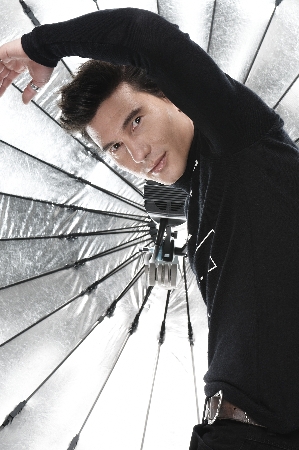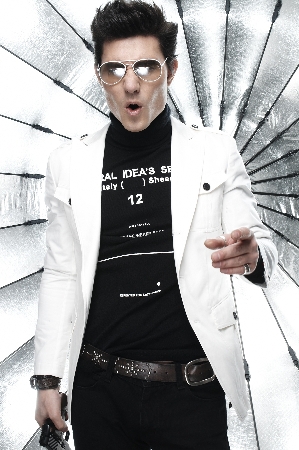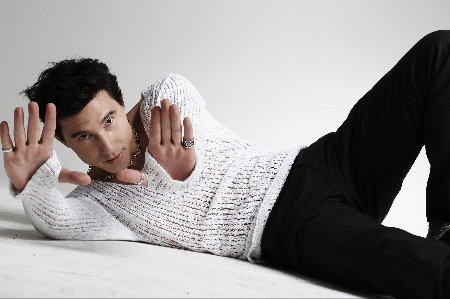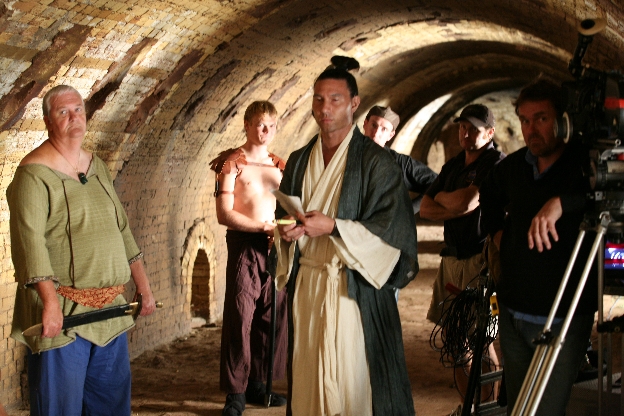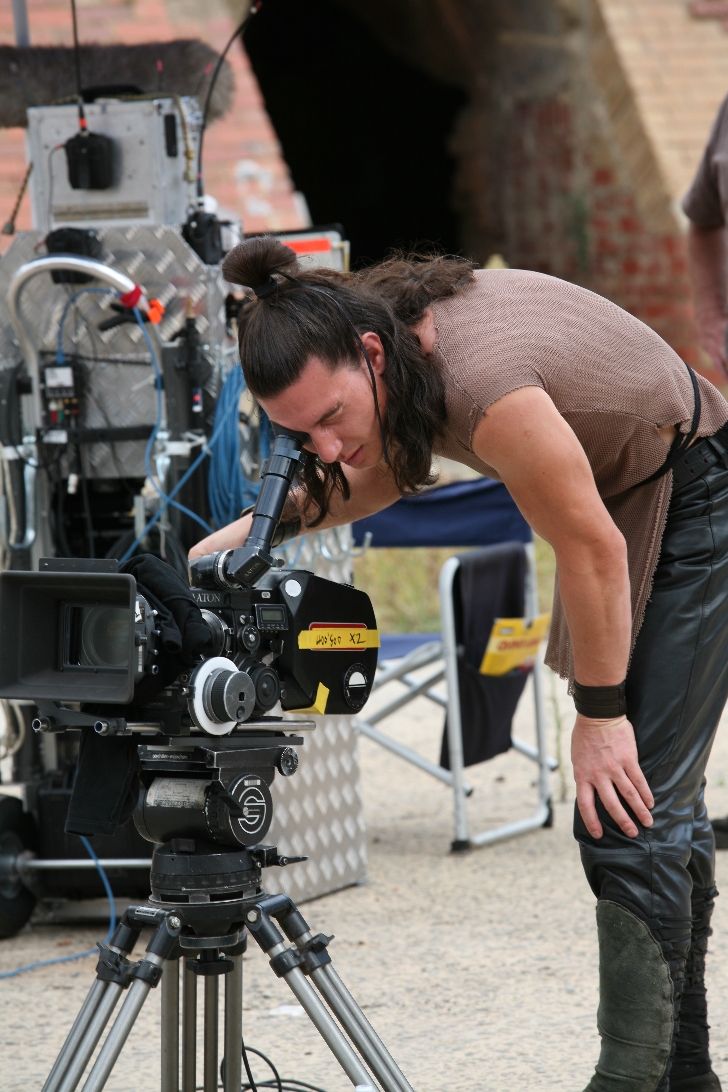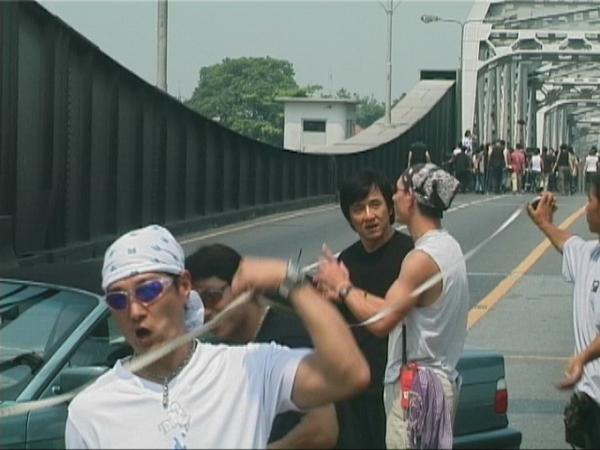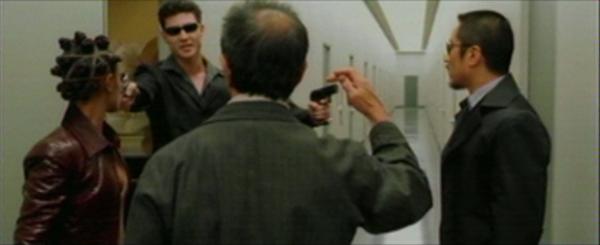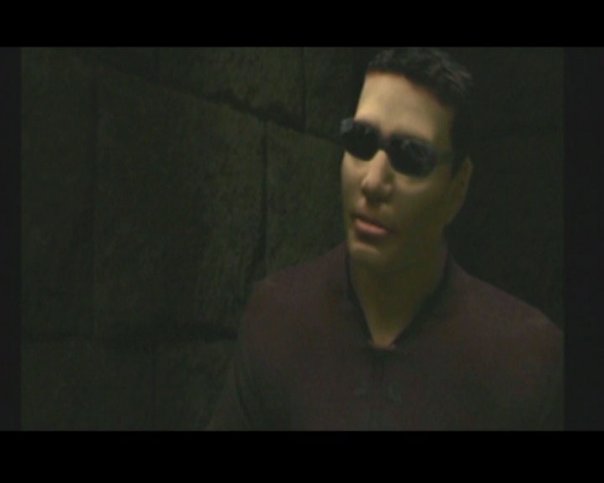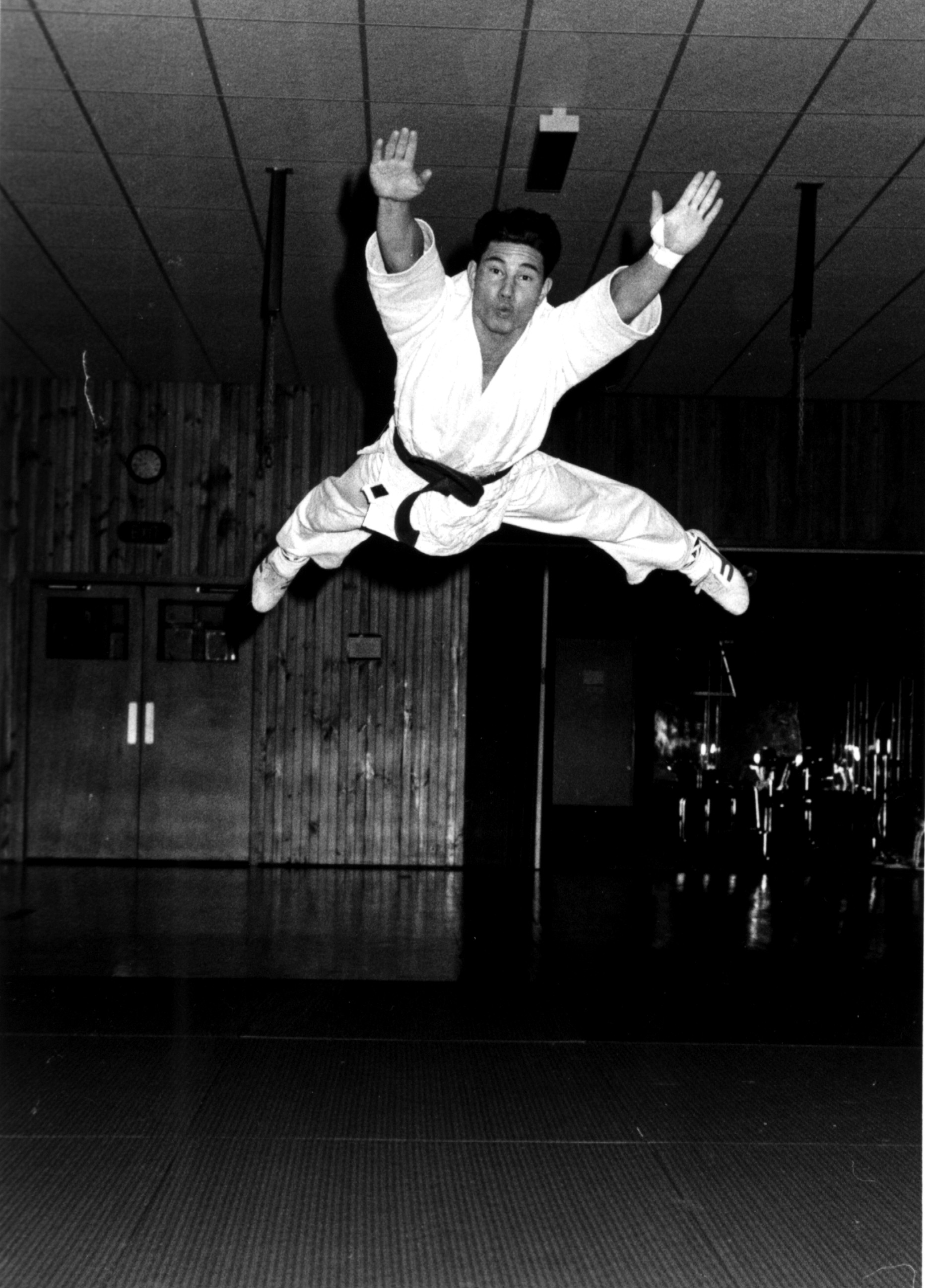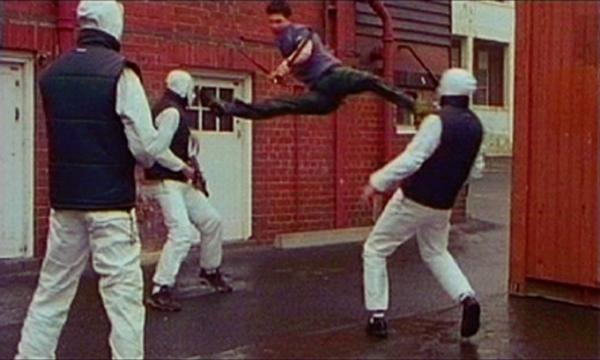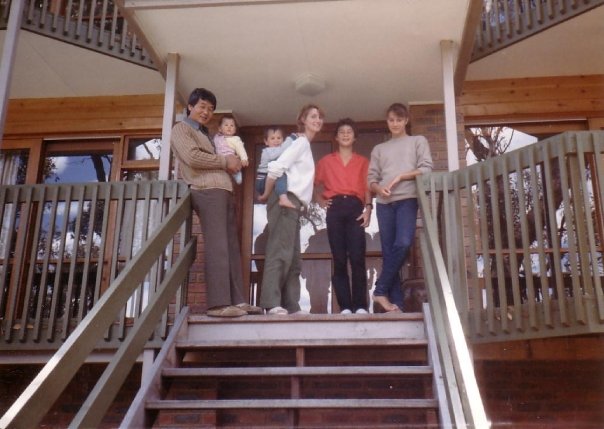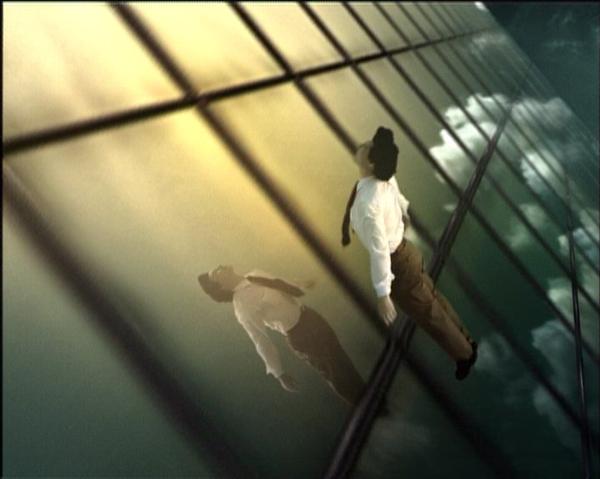|
David No is a man of many hats in the entertainment industry as he has done it all; actor, director, producer, stuntman and the list goes on.
Born November 29, 1972 in Australia, he is the son of a Korean father who helped introduce Taekwondo to Australia and a Australian mother whom to this day is the highest ranking female Taekwondo blackbelt in Australia. It would seem if he was practically destined to be a martial artist. His skill and talent eventually won him a spot on Australia’s national teams of Judo in 1992 and Taekwondo in 1995.
This martial arts background eventually set in motion his transition into the entertainment industry and allowed him many opportunities with a variety of projects around the world with some of the best of the best. He’s worked on projects featuring a wide range of international talent including Jackie Chan (on the film Mr. Nice Guy as well as a Korean TV commercial), Jet Li & Mel Gibson (the Li/Gibson produced film Invincible), the Wachowski Brothers (on the film Matrix Reloaded) and even K-Pop superstars such as Lee Hyori and BoA (“Anymotion, Anyclub and Anyband” commercial campaigns).
He also created his own independent short film, Forged, in 2006 that was well received and an award winner at various film festivals. It was a project that showcased his wide array of skills from directing to acting and much more.
Please note that HalfKorean.com comments/questions are in BOLD.
Background: The Basics on David
Where were you born and raised?
Was born in Melbourne, Australia – and grew up there. I moved around a little, but stayed basically in the Eastern suburbs. I finished High school at Ringwood Secondary College, did a year of Science at University of Melbourne and then moved over to a Bachelor of Physiotherapy at La Trobe University.
Where do you currently reside?
I started working in the film industry as an undergraduate and was quite established by the time I graduated. I started working interstate more, making regular trips to Sydney, but it was when I started working with Korean productions that I started really traveling. Once I made my own film Forged, I moved to LA for a year and now I live in Seoul.
How did your parents meet?
My father was brought to Australia to teach Judo by the Australian Judo Federation. He was a graduate of the Korean Judo College (now Yong-In Sports Science University). My mum joined the Judo team.
Do you have any brothers and/or sisters?
Yup – a brother and two sisters.
Are you fluent in Korean?
My ear is not bad, but I wasn’t so confident in speaking. Mainly because I knew a lot of ‘Ban-mal’ and didn’t want to offend anyone. But in recent years working and living in Korea, my Korean has improved.
What is your favorite Korean food?
Even though my mother was Australian, she is fluent in Korean and makes excellent Korean food – so my stomach is definitely Korean. Favorite food? I don’t know how to pick… a good haemul pajeon? Kalbi Sal? Jjigae?
Did you grow up around other half/mixed Koreans (or people of mixed heritage)?
Melbourne is a very multicultural city, so I went to school with people of all different backgrounds. But when it came to ‘half-Korean’ I didn’t know anyone. I still haven’t met any other half-Korean half-Aussies – and of course everyone assumes that it is my mum that is Korean.
Did you have any identity issues while growing up?
I had an extra dimension to the ‘Korean’ thing . I came from a martial arts family! So even things that I considered to be a Korean trait, I learned later was perhaps a martial arts trait. Identity issues? My parents never pushed the Korean thing on me. We spoke English at home – I guess it was about integrating into the country. Growing up as an Australian I still learned much about Korean culture – after all I had Korean grandparents, uncles and cousins – but I now regret not trying harder to keep the language. Who would have known that years down the track I’d be working so closely with Korea? I am now in Korea to remedy that a bit.
What do people usually think you are (ethnicity) when they see/meet you?
When I was younger I looked more Korean (black straight hair), but now it’s a little wavy and more a black/brown. I don’t think people necessarily can pick my origins, and I’ve gotten a lot of work for that ‘exotic’ ‘multi-ethnic’ feel.
Martial Arts & Entertainment:
Obviously martial arts have played a major role in your life (since both of your parents were involved with martial arts); at what age did you start your training?
I think I started classes when I was 4 years old, but no doubt I did stuff before then.
What was the experience like to be a part of the Australian National TKD & Judo teams?
Martial arts was always there, so too were the competitions (but always second to studies). I was an oddity on the judo circuit. Most of the other competitors came from a Sport judo background. Also compared to most of the heavy set judo competitors, I had a unique physique in that I was leaner and I was also the only one who would use “gi-ap”. Conversely in taekwondo my physique was more muscular than the average taekwondo competitor. My father’s judo was traditional and Korean – so my style was unique on the circuit.
In taekwondo, I knew I was of a good standard, but didn’t really know what that meant in the grand scheme of things (i.e. Internationally). After a 5 year hiatus I got back into competition and within a few months I was fighting the world #3 in the Belgium Open. I lost that day, but only very narrowly. I knew with more training I could be even better, but it didn’t really interest me. I started pursuing the film industry instead.
Do you think that with the rapidly rising popularity of MMA (with BJJ/grappling seemingly being the most popular art followed), TKD might lose some of its long held popularity?
I have been a part of TKD my entire life, and I have watched its many transformations. TKD is great for your development there is no question about that, so taekwondo (if taught well) will always have a place. This is why it is probably the most practiced martial art in the world. MMA is spectator focused, not personal development focused. They have different objectives. I find it ironic that MMA is so popular, because as a child we used to this in our club (as we taught judo and taekwondo).
Do you still train TKD and, if so, how often?
My body has a constant thirst for training. I still train regularly, if not in the dojang, then on my rooftop.
I’ve read in a recent article on you that you actually didn’t enjoy martial arts films when you were younger. I was thinking it was a little odd since you were heavily involved in martial arts. Any particular reason why?
It was because I was so heavily involved in martial arts that I struggled to be impressed. Also I didn’t have great films at my disposal. It wasn’t until a filmmaker introduced me to the world of Hong Kong cinema that I started taking note. The funny thing was I would try to copy them. I would watch Yuen Biao jump up and execute three front kicks before landing. I would practice on a bag, finally changing them to a triple roundhouse kicks – I went back years later only to realize they were on wires! There is a whole generation of martial artists that copy these movies – they move like cartoon characters perhaps not realizing that the film is slightly sped up.
How did you initially get involved in the entertainment industry?
I was asked to star in and provide the action choreography for a short film called The Hunstman. I was still studying at the time. It was a John Woo inspired film school flick. It got a lot of International press at the time, since action films weren’t something introspective film students were making.
Now, you have worked in three different countries (Korea, Australia, USA); which one.s entertainment industry have you enjoyed more (if any difference between the three)?
Actually I’ve been lucky enough to film around the world in many different countries which has given some unique insights into how the process changes in different film industries.
To comment on these three: America has a well established industry and is believed to be the Mecca, but I noticed that the union rules take away practical filmmaking and put in its way a lot of bureaucracy.
Korea has made some amazing world cinema. It is what attracted me back to my roots. Their focus is to ‘get it made’, and so they could possibly benefit from some of the regulations western film industries have in place. Still, it has given me the freedom to be a Producer, an Actor, an action director, a stunt driver – and sometimes all on the same project. Another important aspect of the industry is that it very much follows social hierarchy of the Korean culture.
Australia has amazingly talented actors and technicians. It has many of the professional standards of Hollywood, but often without so much red tape and politics. People don’t realize it, but so many big budget films are made down under (Star Wars, Superman, Matrix, Knowing, Ghost Rider, etc.). Aussies also seem to win Oscars in every category. The disappointing part is that we are heavily reliant on government funding for our own product, which constricts the pool of films that get made.
You are very versatile with multiple skills in the entertainment industry; do you feel that you prefer any specific skill or consider your strongest?
I grew up as a martial artist; Started as an actor and an action choreographer; started writing scripts; no one wanted to make action in Australia, so I learned about producing; soon I was being hired for all of these skills; I obtained my stunt qualifications (it was natural since I was doing so many action movies as an actor); another avenue for work opened; I specialized in fight action and learned more about directing; finally I started directing myself.
As you can see, they are all connected. Writing; directing; editing; acting; action choreography and performing stunts – they are all creative extensions of who I am. Producing? I guess that is the methodology in which I can apply it all.
Often I am on a project in only one of these guises, and so try to keep my input to the department I am hired for. There have been times however, where I am hired in one department, but need to give input in other departments for safety or to solve a problem they are having at the time. These situations are always approached carefully and diplomatically. I soon can judge if they welcome my input or not.
Do you enjoy any particular part of a project most (be it directing, producing, acting, etc.)?
I guess as director you have ultimate creative control – but as mentioned above, I consider it all connected – from concept to exhibition of the final product.
Your first film, Forged, has been an indie film festival circuit favorite. What was the experience like to create and direct your own film and to realize the end product and its accolades?
It’s both terrifying and exhilarating. As the writer, director, actor, etc. – every aspect of the film points back to you, so film critique also points back to you. You learn to take note of the feedback, but you can’t let it affect you negatively. Fortunately for me, my film was well received. The first ever screening was in Los Angeles with an audience of about 300 people. No one really knew me, so it was electric to sit with them and feel the entire cinema oohh, aahh, laugh, cry and feel shock in all the right places!
You’ve worked on a wide variety of projects; is there any that you have enjoyed working on the most?
My own films of course! But next to that there have been other magic moments. I’ve watched sunrises in Africa, Sunsets in Cuba, and shot in ancient castles in Italy. Another project had me fly to snow capped peaks in New Zealand, then 2nd Unit direct a helicopter shot and precision drive a sports car while being chased by a helicopter – all in the same day! I love the process and I love the world – but at the end of the day, I like making my own films the most.
Is there any particular artist/producer you’ve enjoyed working with on previous projects?
There are so many great people – and you should always learn something from each project. It’s not just the famous names either – although its always interesting to see the ‘personal dimension’ to these famous faces.
Anyone that you haven’t worked with yet that you would like to some day?
I’ve been lucky enough to work with some of the great stunt teams of the world: Yeun Woo Ping’s, Jackie Chan’s, Sammo Hung’s, Tony Ching’s, Du-Hong Jeong’s. I guess an obvious name that is missing is Cory Yuen. But action aside, I love film – I love great directors and great actors and particularly great scripts. Right now I’m talking with some Korean filmmakers with plans of future collaboration.
What are you working on currently and any projects we should look for soon?
I have a film I plan to shoot in Korea. It’s a Hollywood action drama with some unique ingredients.
Have you seen any progress in terms of mixed Korean entertainers in Korea (more opportunities, less discrimination, etc.)?
I think Korea has used a lot of mixed Koreans as Entertainers as has most of Asia. Multiculturalness that reaches multiple markets is something everyone understands – America is also a great adopter of the ‘multi-ethnic’ (i.e. could be from anywhere) look.
I remember coming to Korea ten years ago and only seeing foreigners in Itaewon or one subway stop either side. Today, Seoul is a bustling city full of people from different countries. I think this will have to eventually be portrayed in their films.
There are pros and cons to being half-Korean. As an actor, you don’t really fit Asian stereotypes (not Asian enough), but there is an exotic uniqueness that people find attractive. Asian, Caucasian, tall, short, boy, girl – there is always gonna be restrictions somewhere. Don’t get angry, own your uniqueness and let it give you power.
Have you met (or worked with) any other half/mixed Korean artists?
I have met a lot of ‘gyopo’ Koreans (i.e. that grew up in other countries) as well as many half-Koreans. I guess there is an unspoken understanding and I’m sure there are many parallels in our lives.
While filming Matrix Reloaded, did you happen to know that Randall Duk Kim was also half Korean?
Yes, it was not hard to figure out with a name like “Duk Kim”. He’s a really nice guy and we chatted a lot during shooting.
Random & Personal:
What is your current relationship status and what do you look for in terms of relationships?
I have a beautiful intelligent Canadian-Korean girlfriend. I think Canada and Australia have similar lifestyles and of course we both have had Korean lifestyles. It’s a match made in heaven.
Do you have any hobbies or interests that you do to relax?
There is always some work or some exercise I need or want to do, but lately I’ve been enjoying a weekly visit to the Korean sauna and hot baths to relax the muscles.
Anybody you specifically respect/look up to?
I think as teenagers we often grow apart from our family, but as adults we can see how much they have done for us. I’ve also been lucky enough to find my soul-mate. I think you should try to respect everyone around you – at least try to understand them.
What is your take on Korea’s reaction to Hines Ward “phenomenon” in 2006?
Who? I’m not a big Gridiron fan… but have you seen Aussie rules football? ^^
Do you drink soju?
Yes, but only in moderation.
Do you get on the Internet often and, if so, what are some of your favorite websites?
I’ll search the internet for what I need at the time. I think YouTube has brought a lot to the net experience, and sites like Privy are also great.
So, how did you find out about HalfKorean.com and what did you think about HalfKorean.com when you first checked it out?
I think it’s a great idea. I never really met half-Korean people until I came to Korea – I guess it’s great for people out there to know they aren’t the only ones and that you can be successful because of your uniqueness.
Any words that you would like to pass on to the HalfKorean.com community?
Get to know both cultures (it’s never too late). At the end of the day, it’s not about the colour of your skin, but more about better understanding yourself.
Be sure to check out David’s Furious Films website as well as his Official MySpace.
Also, you can purchase his film, Forged, online at Indieflix.com.
I want to thank David for his time as well as Stream Lee for helping coordinate the interview.
Interview by: David Lee Sanders
Posted: 7/24/2009
|
